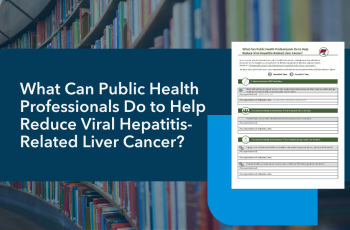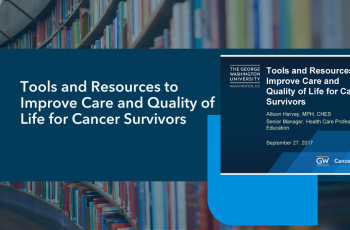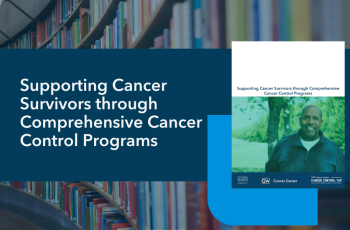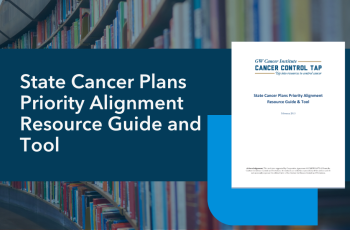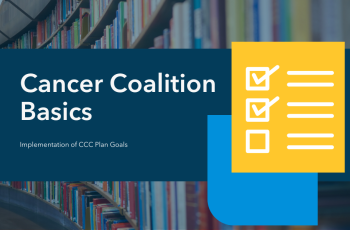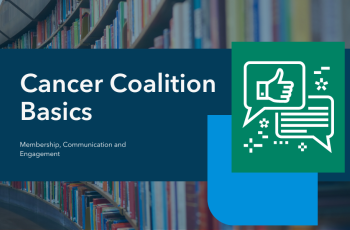This work was supported by Cooperative Agreement #NU58DP007539-01 from the Centers for Disease Control and Prevention (CDC).
Resources
The Policy, Systems and Environmental Change (PSE) Resource Guide is the result of several years of collaboration between the Comprehensive Cancer Control National Partners and select CCC Program PSE demonstration projects
The CRC Clinician’s Guide and slide set is a practical guide for primary care clinicians containing evidenced-based tools, sample templates and strategies that can help practices improve their screening performance.
Here are some essential interventions public health professionals can implement that will address the burden of viral hepatitis, as presented in the National Academies of Sciences, Engineering and Medicine’s “A National Strategy for the Elimination of Hepatitis B and C: Phase Two Report.”
There are approximately 15.5 million cancer survivors living in the United States. Post-treatment cancer survivors are at increased risk for a variety of issues due to cancer and its treatment including long-term and late effects. In recent years, there has been an increased focus on ensuring…
The purpose of this survivorship report is to present a national snapshot of the current state of cancer survivorship in the U.S., including what we know about the health status, needs and disparities among survivors.
To help states better align their goals and activities with various national public health priorities and indicators, the GW Cancer Institute created a State Cancer Plans Priority Alignment Tool that summarizes top priorities and can be used as a guide for goal setting at the state and local…
The Patient Navigation Barriers and Outcomes Tool (PN-BOT) is a free, Excel-based data entry, data management and reporting product designed for oncology patient navigation programs.
This section of the Cancer Coalition Basics provides Comprehensive Cancer Control (CCC) coalitions with guidance and resources on funding, managing resources and sustaining the coalition.
This section of the Cancer Coalition Basics summarizes ways that comprehensive cancer control (CCC) coalitions can implement their state's cancer control plan goals.
This section of the Cancer Coalition Basics covers comprehensive cancer control coalition membership composition, process and engagement.
